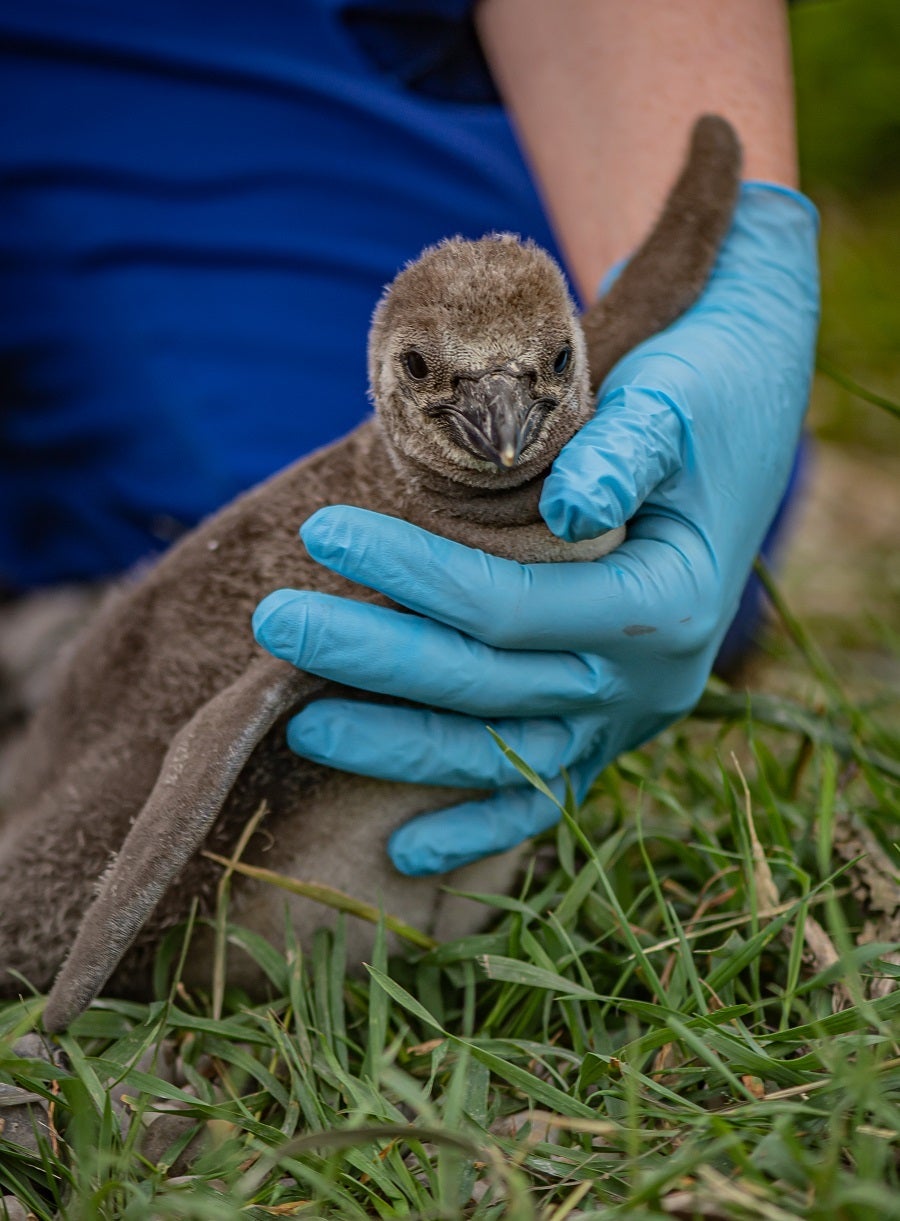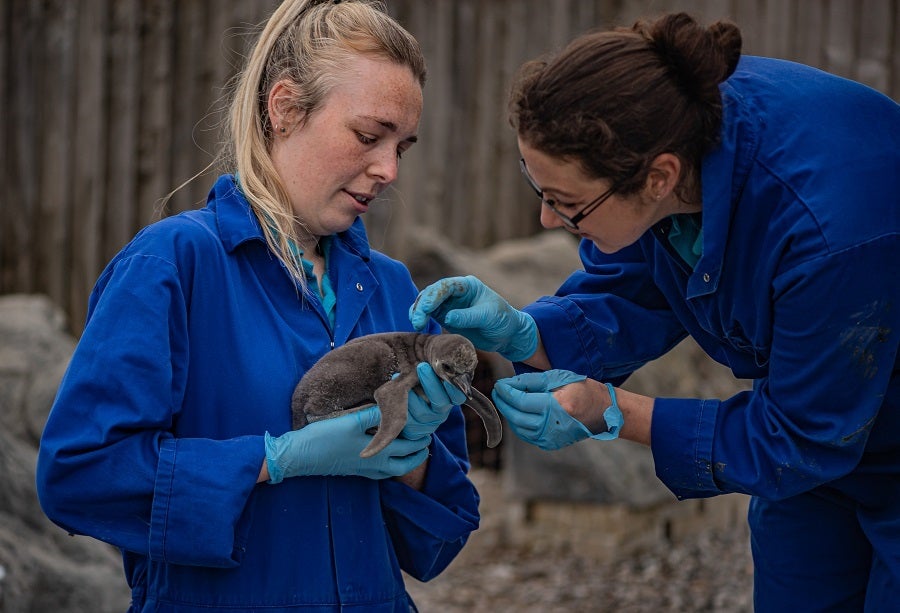Zoo hails arrival of nine endangered Humboldt penguin chicks
Keepers at Chester Zoo have named the Humboldt penguins after their favourite fruits.
Chester Zoo has welcomed the arrival of nine endangered Humboldt penguin chicks.
Keepers have named the baby birds after their favourite fruits.
The first to hatch was Plum, with Peach, Papaya, Cherry, Rhubarb, Satsuma, Lemon and Banana also joining the colony.

The final chick was named Iona-Berry in honour of a vet who saved the eyesight of the penguins’ father, Munch, last year.
Sophie Bissaker, parrots and penguins keeper at Chester Zoo, said: “There’s nothing quite like hearing tiny chirps coming from the penguin nests and seeing little balls of fluff snuggled up with their parents just moments after hatching.
“Penguin Island is buzzing with activity.
“Zookeepers have a trend of naming the penguins using a different theme each year and previously we’ve had brands of crisps, chocolate bars and, in 2020, our NHS heroes.
“After some serious thought, we’ve decided to name this year’s class after different types of fruit.”
Of the world’s 18 penguin species, Humboldts, typically found on the rocky shores of Peru and Chile, are one of the most at risk of extinction due to climate change, overfishing and rising ocean acidity levels.
As a result, they are becoming less common and have been listed as vulnerable to extinction by the International Union for the Conservation of Nature (ICUN).

Chester’s newly-hatched Humboldt penguins have now started swimming in the zoo’s pool.
Ms Bissaker said: “For the first three months of life, mum and dad keep their new chicks tucked away while they feed and nurture them.
“To help them gain weight while they’re so young, we provide the parents with extra fish, which they swallow, churn into a high-protein soup and regurgitate at feeding times.
“They’ve just started to venture out of the nest to begin swimming lessons in the main pool, where they’ll learn how to catch food for themselves.
“In a few weeks they’ll shed their fluffy grey feathers to reveal their iconic black and white feathers underneath, which are waterproof and help them zoom through the water.”


Bookmark popover
Removed from bookmarks